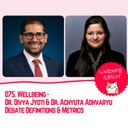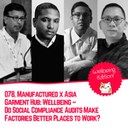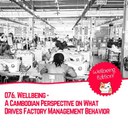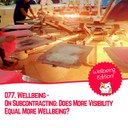
The GIZ textile project FABRIC developed the "Seth Yerng - Our Rights" app. The app provides knowledge to textile workers about their rights and obligations under the Cambodian labour law.

The GIZ textile project FABRIC developed the "Seth Yerng - Our Rights" app. The app provides knowledge to textile workers about their rights and obligations under the Cambodian labour law.



Improving Chemical Management through more Sustainable Practices in Chinese Shoe Factories

Improving Chemical Management through more Sustainable Practices in Chinese Shoe Factories

Factory Training Materials - Advanced modules

Factory Training Materials - Basic modules

The Climate Action Training includes 5 thematic modules that can be completed independently (self-paced) or in a tutor guided format. Participants of the Climate Action Training will learn how to minimize climate risks and reduce greenhouse gas emissions in your business operations. In 11 modules for self-paced or tutor-guided training participants of e-REMC Chemical Management will learn how to improve and implement chemical managment systems at your factory. The training covers a variety of topics including chemical risk control, health protection and occupational safety.

The guideline "Inclusion in Textile Supply Chains" aims to support companies in promoting the employment of people with disabilities in a non-discriminatory and practical manner.

The report takes stock of employment, wages and productivity in the Asian garment sector by exploring data and policy insights to highlight trends, patterns and ways forward for a better future of work. By utilising updated data insights, the report outlines persisting decent work deficits as the garment sector evolves, and the prioritised support needed to overcome such challenges.

In this note, you will learn about: 1. Configuration of on-site solar systems 2. The net energy metering (NEM) scheme 3. System requirements for NEM 4. Required permits and licences for NEM 5. NEM application procedure

Designed for Factory owners in the textile and garment industry. This note introduces various investment models that factory owners can choose from when implementing a solar system. More specifically, you will find information about: CAPEX vs OPEX investment model, Decision-tree for selecting the suitable investment model, In detail: investment models available in your country, Recommended steps to identify the right solar partner.
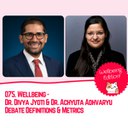
In collaboration with the Asia Garment Hub, the Manufactured podcast is running a four part series on worker wellbeing. This episode looks at how to define and measure wellbeing. Joining co-hosts Kim van der Weerd's and Jessie Li in this episode are Dr. Divya Jyoti and Dr. Achyuta Adhvaryu. Divya is a lecturer at Lancaster University. She researches how workers experience the codes of conduct put in place by brands for their suppliers. Ach is Assistant Professor, Business Economics and Public Policy at Stephen M. Ross School of Business, University of Michigan and a co-Founder and research director at Good Business Lab.

We released our new digital brochure for the labour law app "Seth Yerng - Our Rights"! To empower female garment workers and to improve the knowledge of their rights FABRIC Asia created the mobile application called ‘Seth Yerng – Our Rights’ for Cambodia. The app has been launched in March 2021 and it informs workers about the most important labour laws and occupational health and safety regulations in the workplace in an interactive manner.


This note provides an introduction to financing solar PV projects in Cambodia, including: ∙ Key considerations for financing your solar PV project ∙ The typical loan terms in Viet Nam
